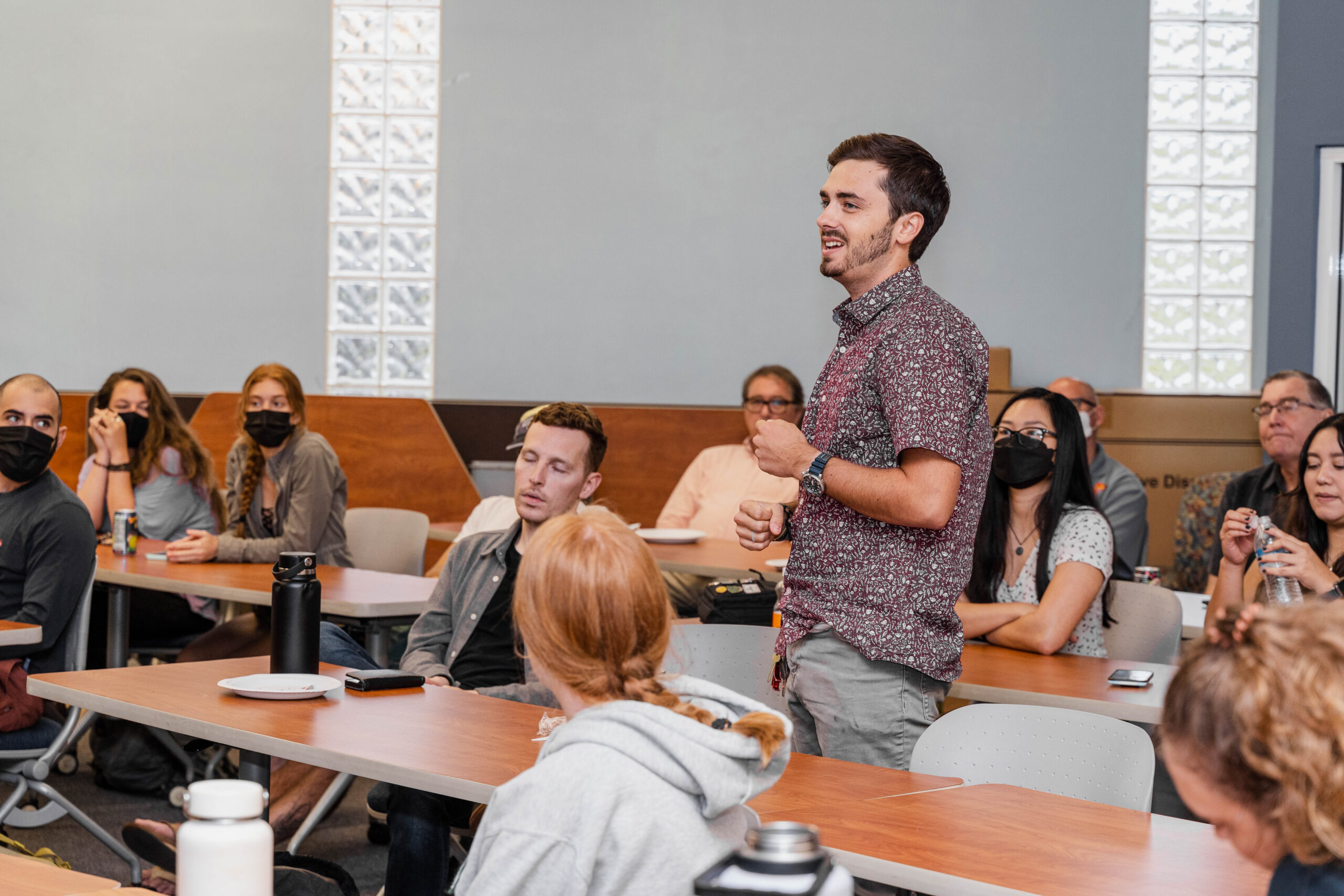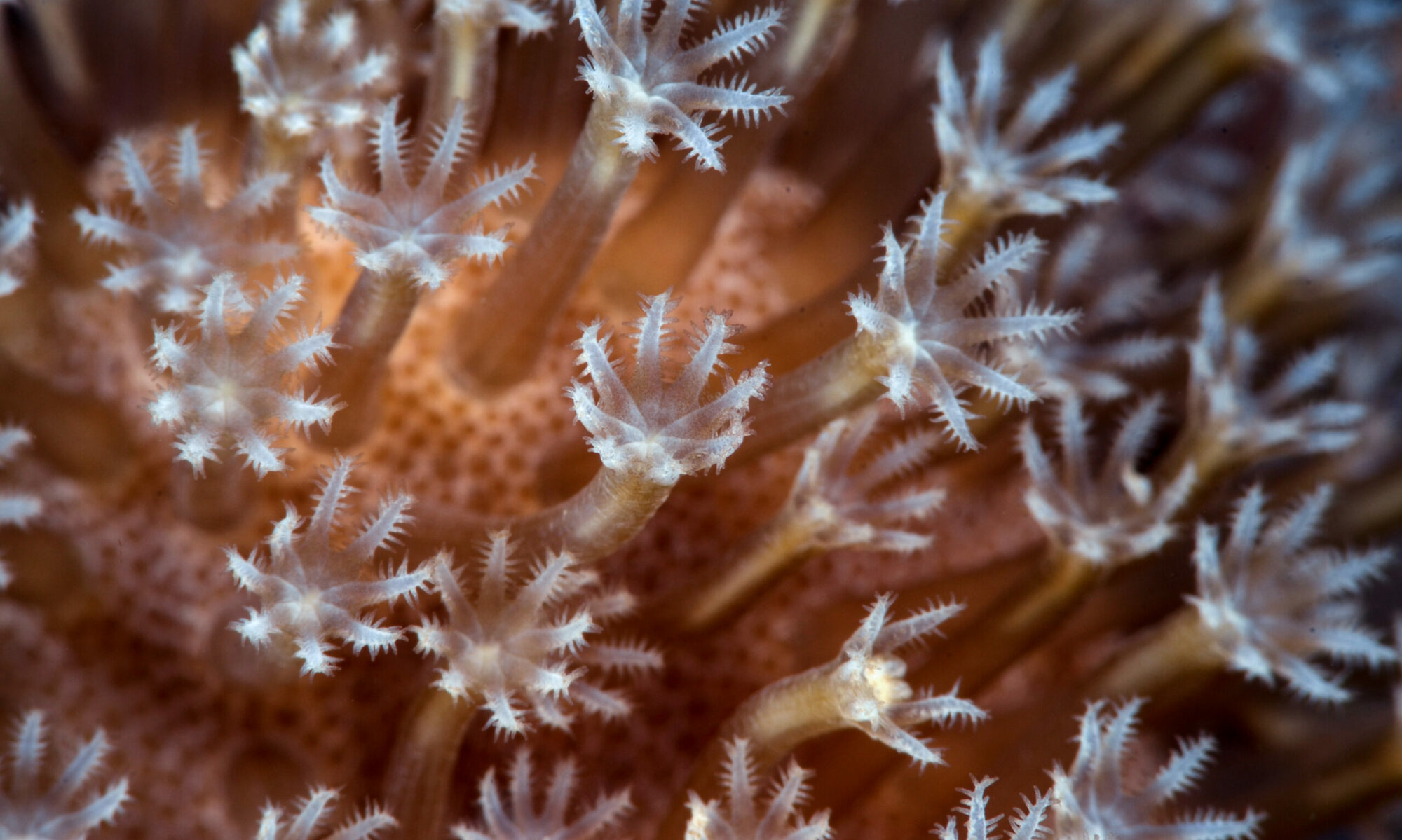


Guam NSF EPSCoR welcomed six new members to its Graduate Research Assistantship program during an orientation held on Friday, August 26, 2022.
Over the course of the three-year program, these six graduate research assistants will receive tuition coverage, a salary, as well as mentorship and support over the course of their graduate program as they conduct research regarding coral reefs, coastal systems, genetics and genomics, or identifying patterns of regional biodiversity.
These new GRAs include Grace Jackson, Lauren Kallen, Andrew O’Neill, Xavier De Ramos, Zoe Trumphour, and Garret O’Donnell.
“I would like to welcome our new students to the program,” said Terry Donaldson, the principal investigator and director of the Guam NSF EPSCoR program. “You will get to utilize equipment, instruments, and various assets to conduct your research that people used to dream about. When I was a student, a lot of this stuff had not been invented yet. You’ve earned your place here. We’re behind you and we want you to succeed.”
The GRA program is part of Guam NSF EPSCoR’s goal to develop a research program to help ensure the sustainability of coral reef ecosystems in the face of environmental change. In total, Guam NSF EPSCoR now has 20 graduate research assistants.
Each of the graduate research assistants were given free memberships to the Guam Green Growth Makerspace and Innovation Hub. Guam NSF EPSCoR helps support Guam Green Growth.
“This is like a whole other fancy lab,” said Austin Shelton, Guam NSF EPSCoR’s co-principal investigator and the director of the University of Guam Center for Island Sustainability and Sea Grant. “Outside of campus, you can go down to the CHamoru Village in Hagatña and use 3D printers, CNC routers, and laser cutters as well as brand new terracotta printers. If anybody wants to use that to build tiles to start growing stuff on, you can plug in the 3D designs and start building there.”
For three years, these students will be a part of a project that covers a diverse range of research areas.
“For this grant, the research crux here involves understanding why some corals are more resilient than others, climate change and temperature increases, and watershed degradation and sedimentation,” said Bastian Bentlage, co-principal investigator of the Guam NSF EPSCoR. “We have a lot of associated research projects, as well. Some of you will focus on coralline algae, crustaceans, diatoms, as well as fish that spend part of their life in freshwater systems and then another in the ocean. There’s a broad variety of research areas, but the overarching theme is how our reefs will fare in a changing climate.”
The new graduate research assistants will also be able to access near-peer mentorship opportunities in which they can learn from their peers and postdoctoral students as well as teach undergraduate and high school teachers over the course of their term.
“This program is such a great opportunity, especially for master’s students,” said Garret O’Donnell, a new graduate research assistant. “It’s very well-funded compared to a lot of master’s programs. When it comes to other universities, sometimes students would have to pay for their positions, so it’s helpful to have a salary on top of my tuition coverage that allows me to do this.”


